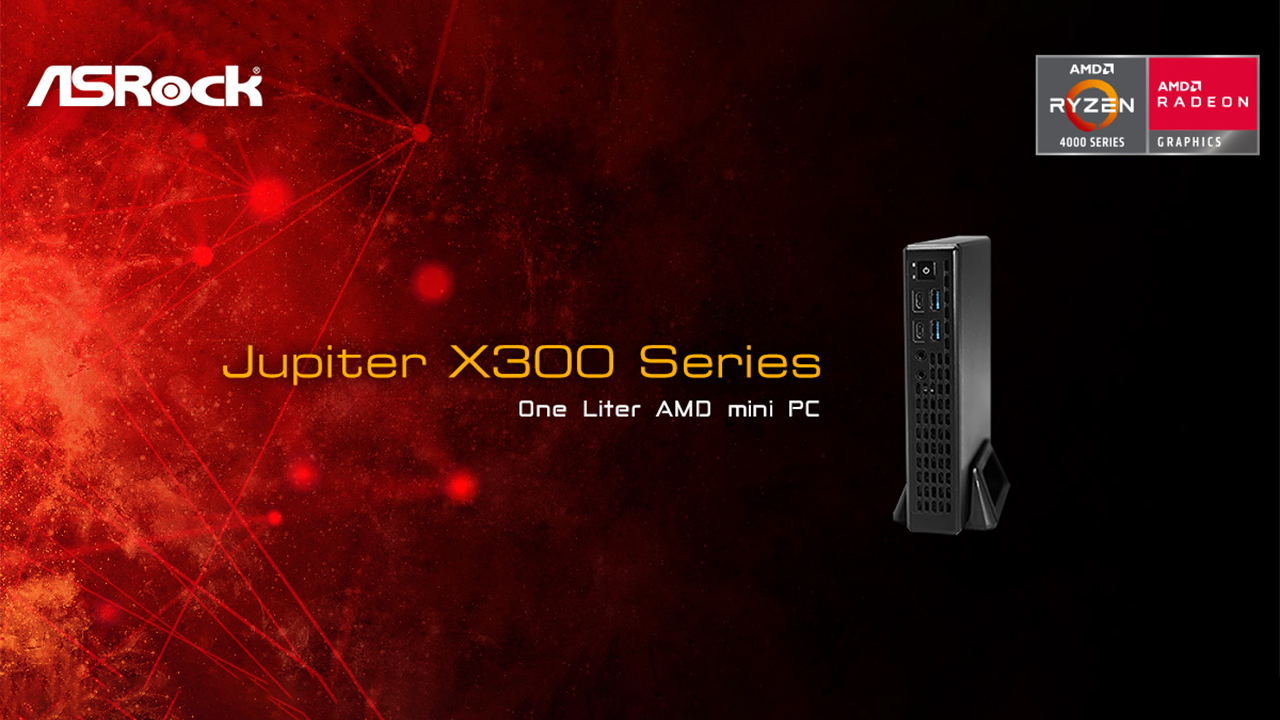ASRock has announced its new series of ultra-compact form-factor (UCFF) PCs that combine small dimensions with performance of desktop APUs from AMD. ASRock’s Jupiter X300-series is only slightly larger the company’s Mars 4000U-series machines launched last November, but it clearly packs considerably more performance and features than its smaller brother.
ASRock’s Jupiter X300 barebones PC uses AMD’s easy-to-find socketed Ryzen 2000/3000/4000 APU with up to eight cores, built-in Radeon Vega graphics as well as an up to 65W TDP cooled using a copper heatsink and a high-performance blower. The APUs can be paired with up to 64GB of DDR4 3200 MHz memory (using two SO-DIMM modules), an M.2-2280 SSD with a PCIe 3.0 x4 or SATA interface, and a 2.5-inch/9.5-mm drive.
The manufacturer says nothing about compatibility of its Jupiter X300 systems with AMD’s not-yet-announced Ryzen 5000-series ‘Cezanne’ APUs, but the machines are based on a rather outdated AMD X300 chipset. Meanwhile, since the motherboard uses a proprietary form-factor, it will prove tricky to upgrade.
The Jupiter X300 chassis measures 178 × 178 × 34mm, so not as compact as a NUC, but not too far away from NUC-like dimensions. The system — which is actually smaller than Apple’s MacMini — can be attached to VESA mounts of a display or used on the desktop.
Connectivity department of ASRock’s Jupiter X300 is quite advanced. The machine can be equipped with Intel’s AX200 Wi-Fi 6 + Bluetooth 5 module (or any other adapter if you buy it separately), it has one Gigabit Ethernet port, three display outputs (a DisplayPort 1.2, an HDMI 2.0, and a D-Sub to support legacy monitors), two 3.5-mm audio connectors, and eight USB ports (two USB 3.2 Gen 1 Type-C, four USB 3.2 Gen 1 Type-A, two USB 2.0), which might be a record for an UCFF PC.
ASRock positions its Jupiter X300-series machines for home, office, and enterprise customers. Since the latter often require remote management and advances security, ASRock offers them its X300-serie DASH barebones with a DASH-enabled LAN, trusted platform module 2.0, an anti-intrusion sensor. Obviously, to use remote management and other advanced features of AMD’s business platform, the systems have to be equipped with the company’s Ryzen Pro-series APUs.
ASRock did not announce MSRPs of its Jupiter X300-series barebones PC.
